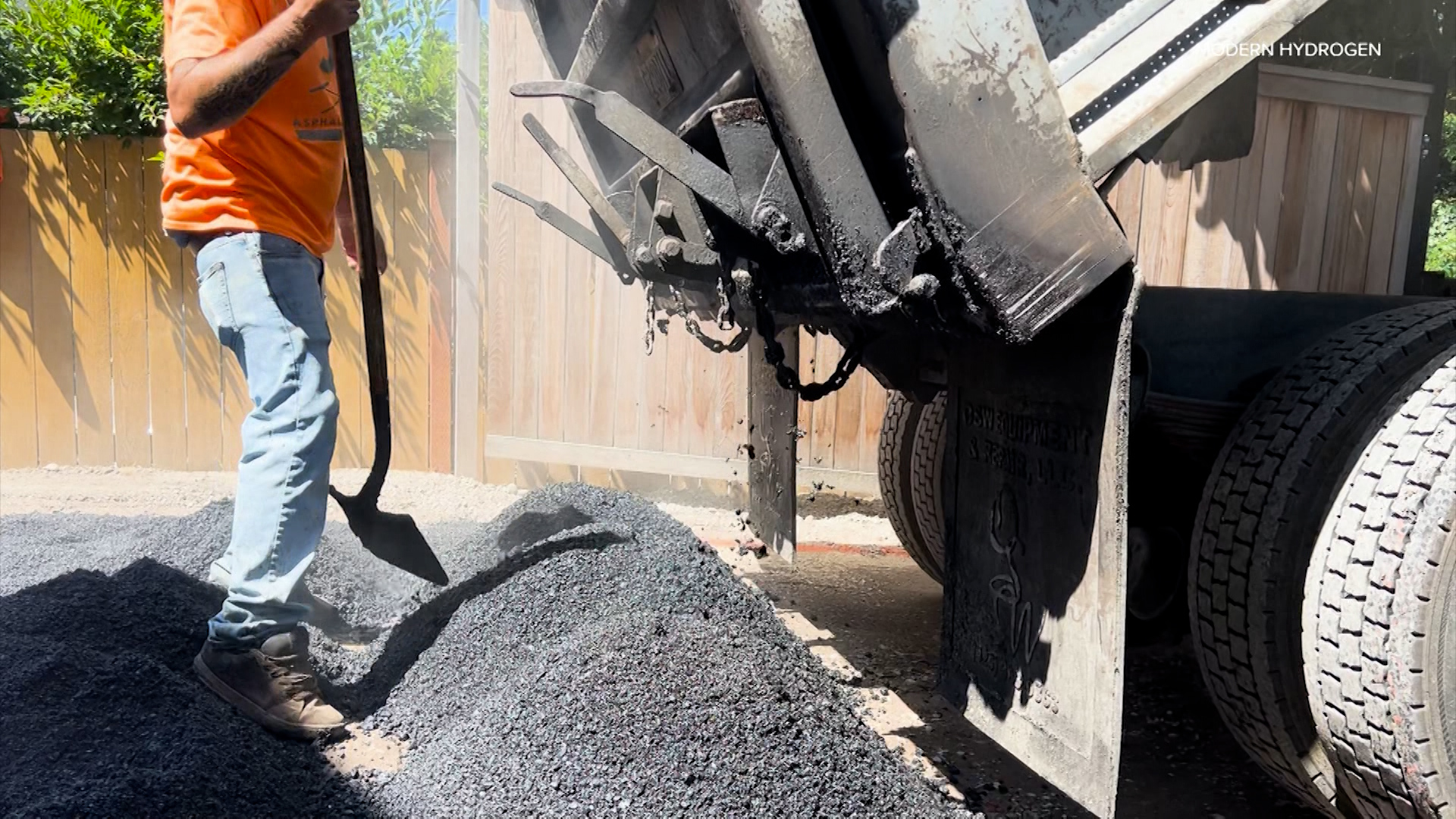SEATTLE — Scientists say climate change is wearing down our roads faster and you don’t have to look far for potholes and cracks in the road around Seattle.
"The extreme events are the problems," University of Washington civil and environmental engineering professor Steve Muench said.
An example would be three straight days of triple-digit heat. Muench said roads in the Seattle area weren’t designed for that.
Heat causes buckling and cold weather plus heavy rain can produce more potholes.
These run-down roads need to be replaced and road owners are looking for stronger and more environmentally friendly pavement.
“This is how much carbon is embedded in just a little bit of your fossil fuels and this is what we’re preventing from being admitted to the atmosphere,” Modern Hydrogen CEO and co-founder Tony Pan explained while holding up a large jar of solid carbon.
Pan and his team at the clean energy start-up Modern Hydrogen may have a solution.
They discovered how to make clean hydrogen by pulling carbon out of natural gas. It’s a process called methane pyrolysis. The start-up has spent the last decade doing research and development on the technology.
Now they sell the solid carbon as a clean material to put in asphalt. The clean carbon looks like coffee grounds.
Pan said they are the first company to take carbon out of natural gas and turn it into a form that makes asphalt binder.
Asphalt is made of rocks but the glue that typically holds it together is the leftovers from crude oil, which emits carbon dioxide
"Our carbon not only makes asphalt stronger, but because our carbon comes with no CO2 emissions it also makes your asphalt cleaner,” Pan said.
Recently Modern Hydrogen moved into their new headquarters in Woodinville. They have grown to about 80 employees.
Bill Gates is even an early investor in the company. He did a tour of the facility this spring.
The so called modern asphalt is used by Bexar County in San Antonio, Texas and four other states including Washington. However, so far only private entities have used Modern Hydrogen’s product in Washington.
Pan said they are still working on a limited supply, but are building as many hydrogen generators as possible.
"They're going to the highest bidder, and the highest bitter hasn't been in Washington state," Pan said.
"Absolutely you should try something like this," Muench said.
The civil engineering expert said gaining the trust of agencies like the Seattle Department of Traffic and Washington State Department of Traffic takes time. He said it’s for good reason since roads last for years and the agencies are dealing with taxpayer dollars.
"There's a lot of testing and there's a lot of proof of the material working before you can get approved by these road owners," Muench said.
Muench said this technology is a promising start.
"About 40 to 50% of [asphalts] CO2 emissions come from that heating process. So, if they can do that with hydrogen it goes from 40 to 50% to nothing," Muench explained.
The solid carbon is a byproduct of Modern Hydrogen, essentially it is free for them to make.
This comes as bitumen, which is traditionally used as an asphalt binder, has experienced a drastic increase in price over the last decade.
"So we actually have a cheaper way of manufacturing this as well," Pan said. "So it’s like a triple whammy for our customers."
Pan said he expects their product will be all over North America and said they are even starting to deploy some of their hydrogen units internationally.
Right now the United States government is granting $1.2 billion to state departments of traffic to use material with a lower carbon footprint. WSDOT has applied for that grant.
Muench said the federal government is essentially saying they want road owners to try new environmentally friendly options and will help pay for it.
Modern Hydrogen believes they are a piece of the puzzle in slowing climate change.
"Will it be a raging success? We'll find out. But I'd love to find out," Muench said.

